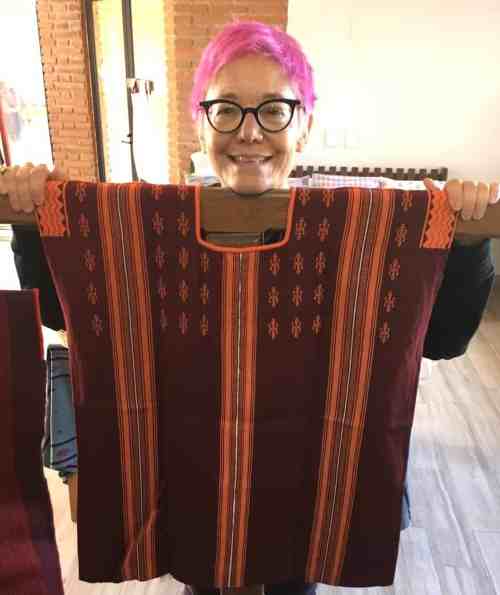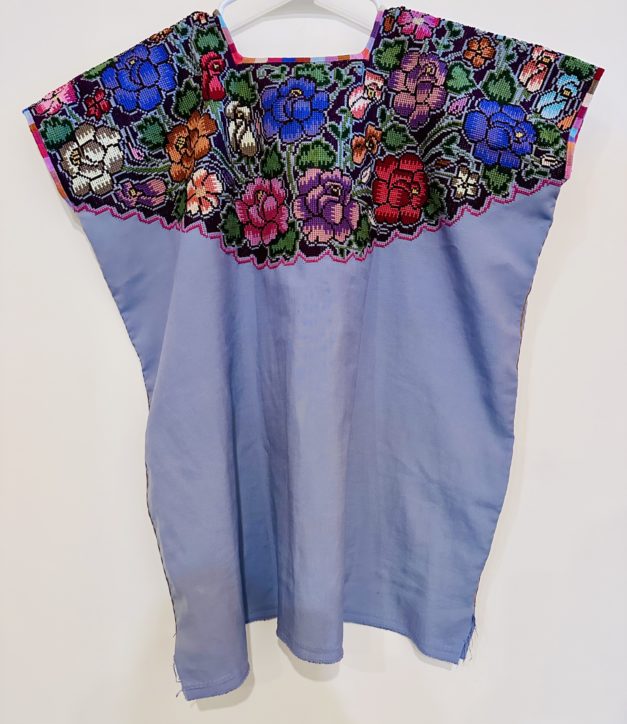The textile cooperative Jolom Mayaetik is one of the oldest and most successful in and around San Cristobal de Las Casas, founded in 1980. This is the 5th year we have visited them and they continue to improve processes, increase production, build capacity and create highest quality weavings.

They have over 200 cooperative members in five different villages: Chamula, Zinacantan, San Andres Larrainzar, Magdalenas Aldama, and Oxchuc. Each village is known for their distinctive style of garment. All weave using the back-strap loom, are rescuing traditional designs, and are experimenting, too, with color and form to meet marketplace taste.

I’m always reminded about what cultural anthropologist Martha Turok once told me: Innovation and creativity are vital for keeping traditional indigenous textile processes alive. Without change, the practice will be lost.


Jolom Mayaetik president Elvia Gomez Lopez welcomed us again with open arms. She is the daughter of one of the founders. Their organization is based on mutual support of women, providing health care and education to families, guaranteeing a fair wage, and profit-sharing. Even those who don’t sell get paid.

These women are activist artisans. They subscribe to social justice and human rights. Resisting oppression is a cornerstone of their survival strategies. They are political. They participate in training programs to improve textile making skills and business skills. They are role models for young women in their villages who want to learn and work in collaboration with each other.


Husbands and sons participate, too. Boys are learning to weave. Men help with loom-building and some are supportive of their wives’ independence, because they are bringing money to the family and to communities.


Before we entered the newly constructed showroom where clothing and home goods are displayed for sale, we sat down around a large meeting table to share stories, break bread together, and hear from some of the cooperative leaders. The beauty of doing this first is to gain an appreciation for the values, goals, challenges and opportunities that Maya women face in their lives.

In this cultural exchange of sharing and asking questions, we come to know people as individuals, to hear their stories, and to appreciate the time it takes — often months — to create a handmade textile. Then, as we consider what we may want to purchase, we have a better sense of value for a woman’s time and materials.

We brought gifts of eye glasses of varying strengths to help weavers and embroiderers see better. We brought scissors, embroidery floss and scissors. We brought crayons and books for children. We brought our goodwill and desire to support the efforts of the cooperative by making purchases and making memories.

Thanks to our textile study tour travelers for contributing photos to this blog post: Lynn Nichols, Bitty Truan, Claudia Michel, Sheri Brautigam, Marsha Betancourt, Winn Kalmon, Margaret Sherraden.
We are offering this Deep Into the Maya World: Chiapas Textile Study Tour in 2021. The itinerary will be the same but the dates are February 23-March 3, 2021. If you want to join us, complete the Registration Form at the top of the banner of this website and email it. We will then send you a deposit invoice.






